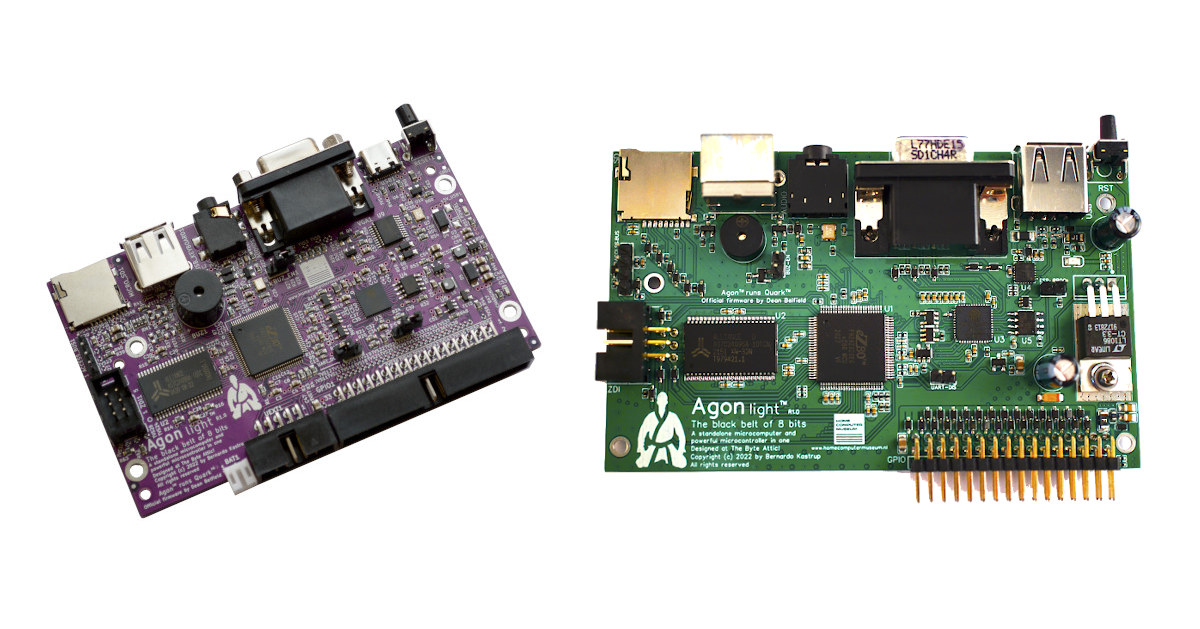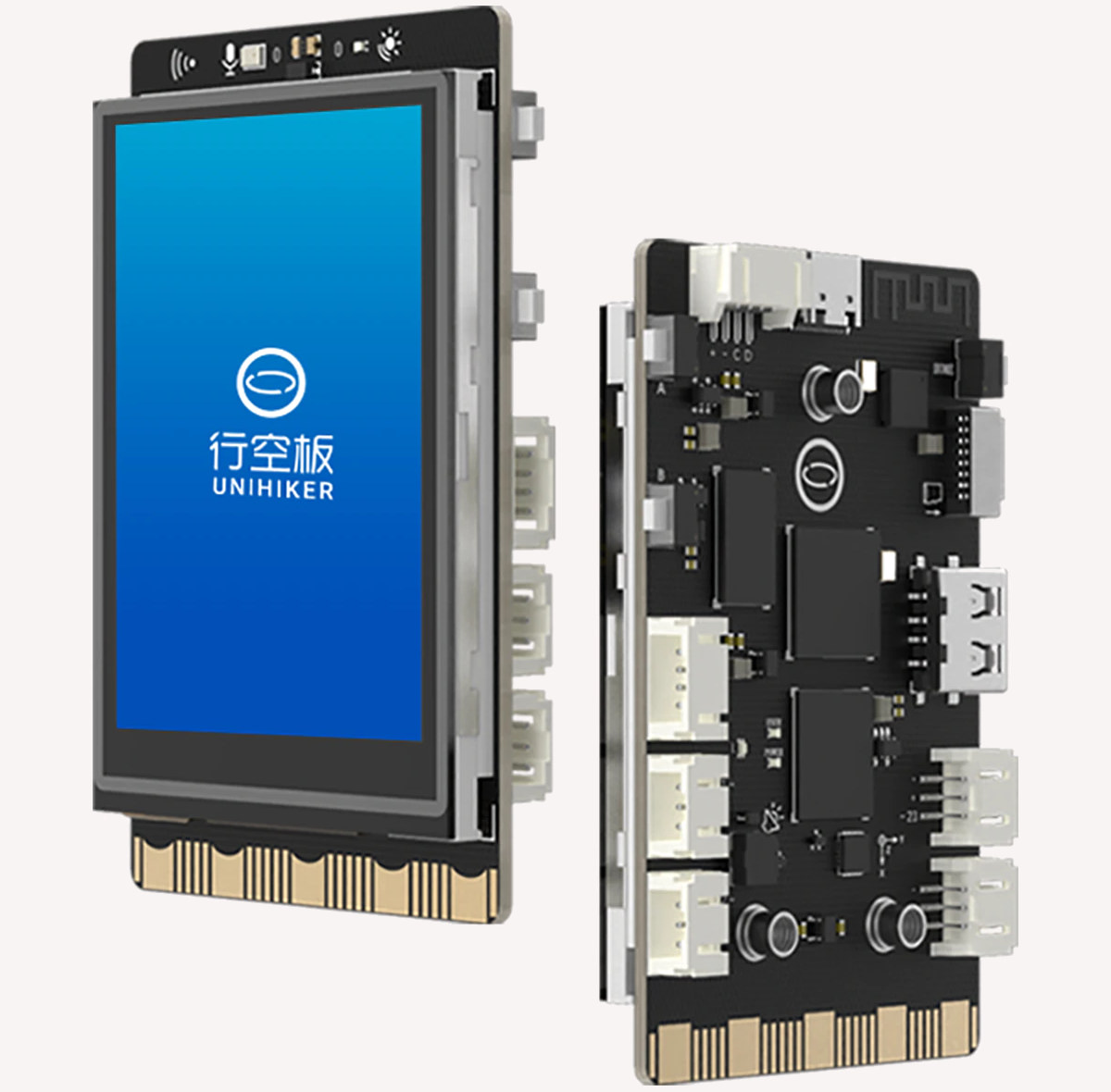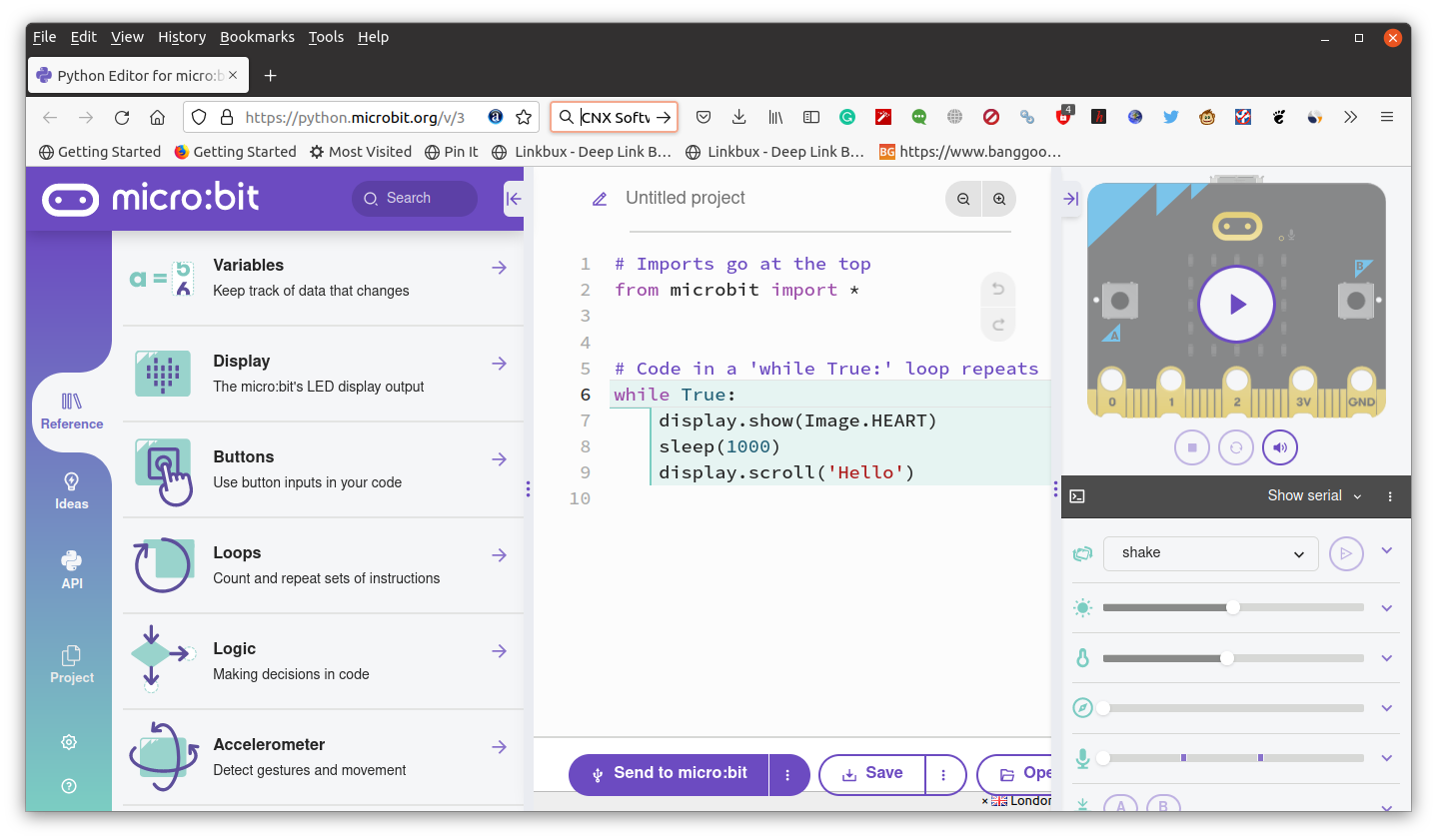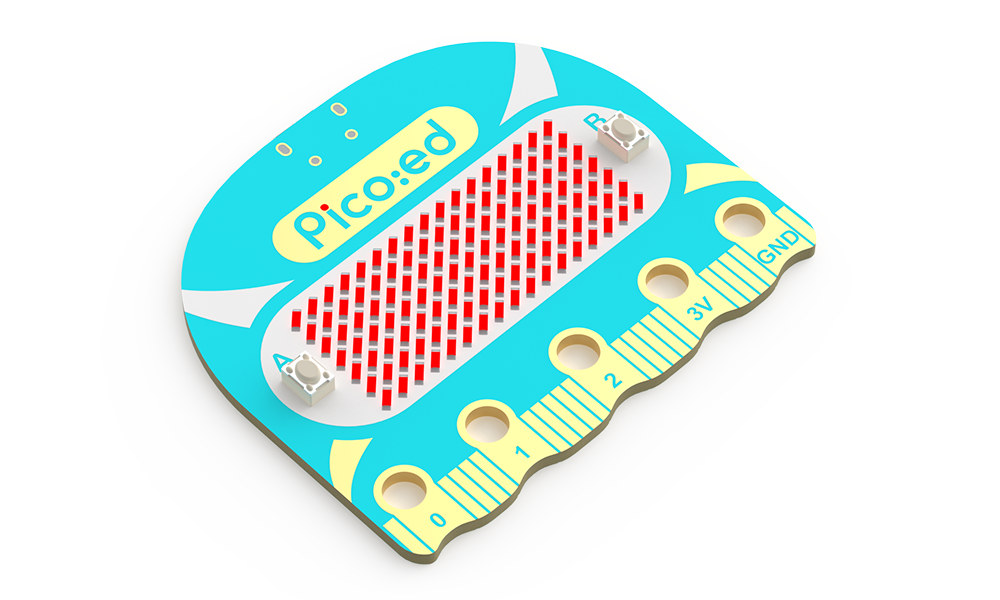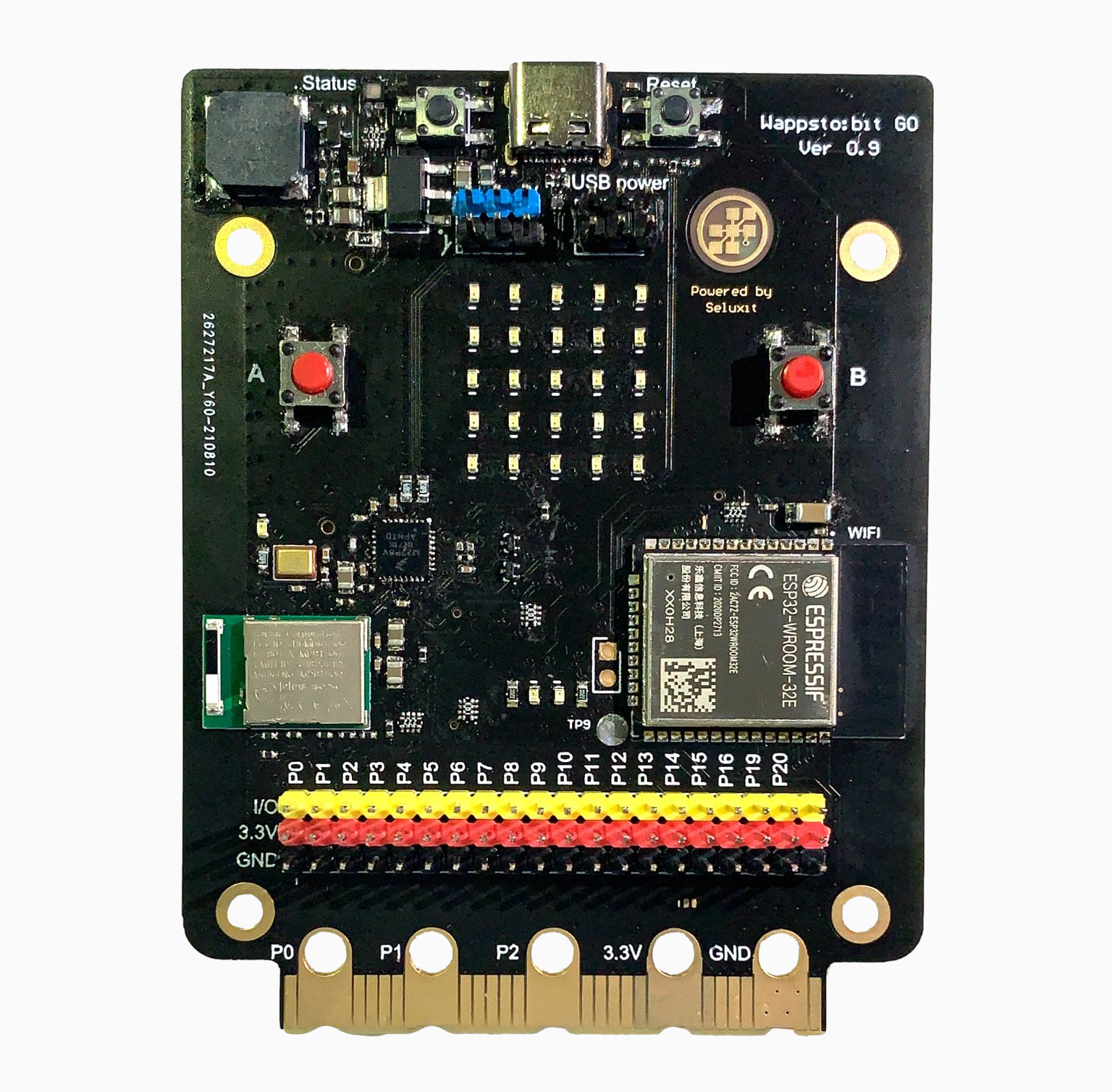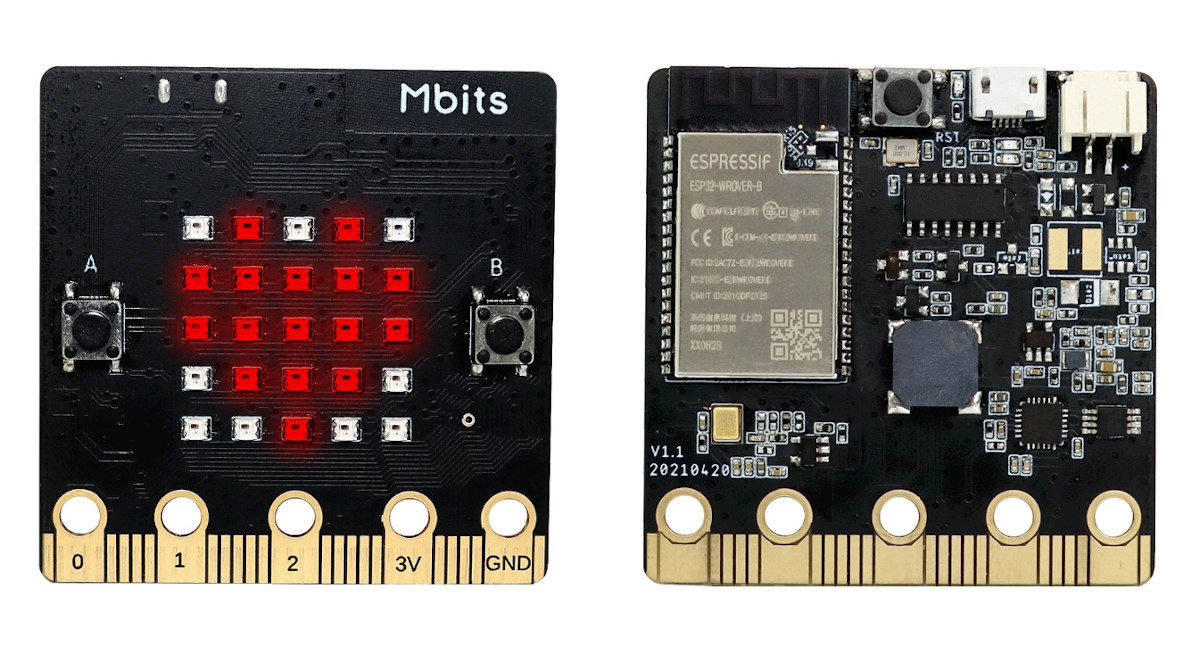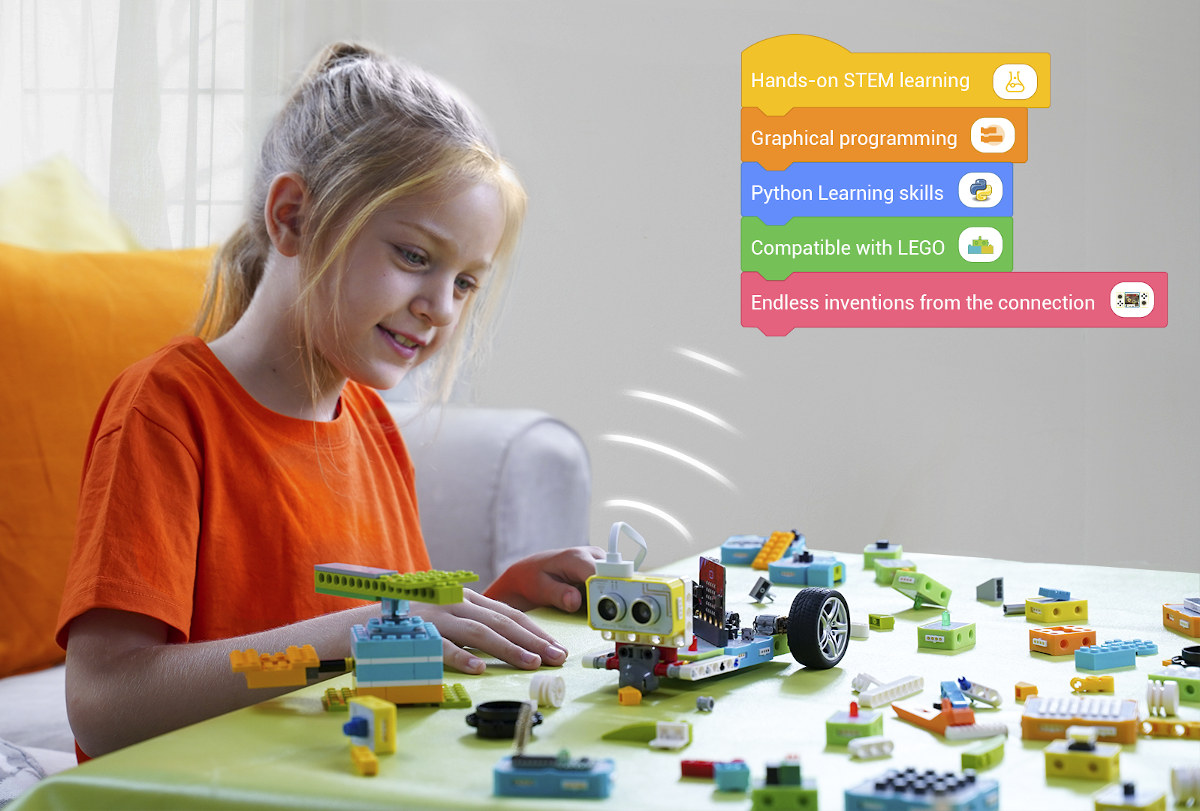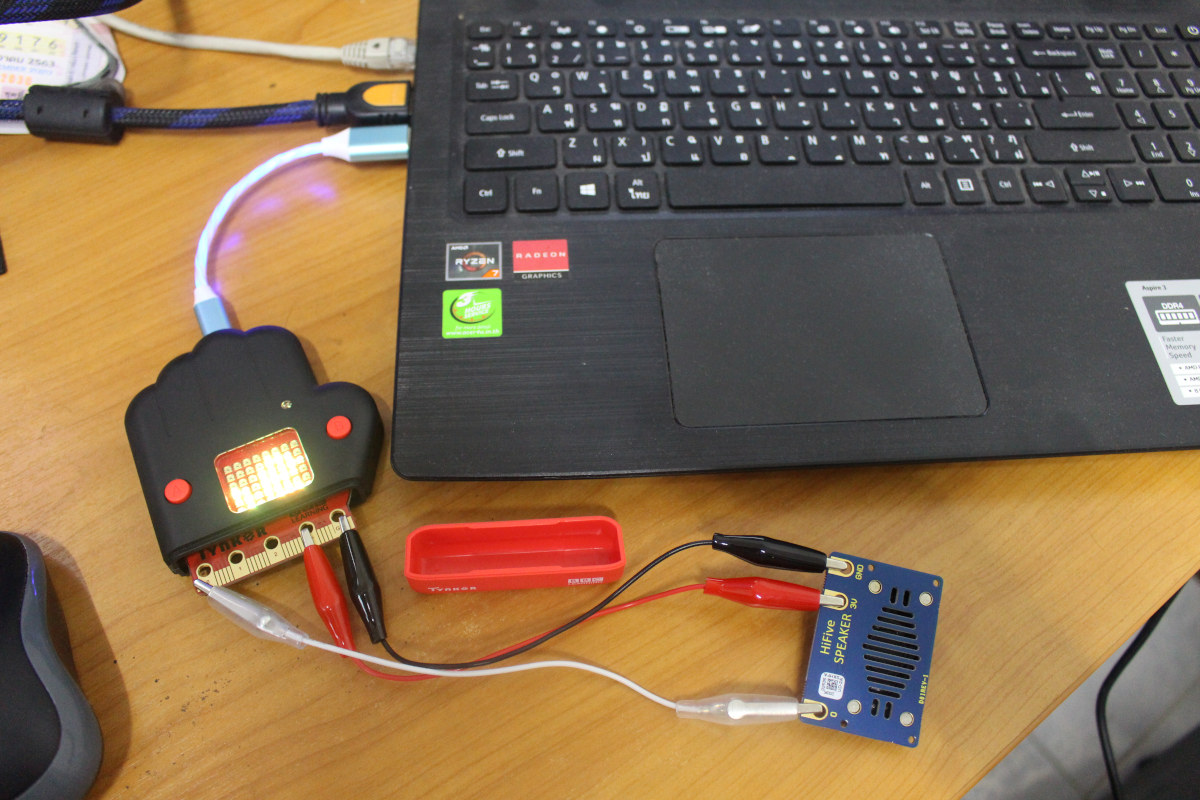Olimex has started to take pre-orders for the AgonLight2, a customized version of the Agon Light 8-bit open-source hardware computer based on the Z80 family and running BBC Basic. Bernardo Kastrup and Dean Belfield created the Agon light 8-bit retro computer with VGA and PS2 keyboard port and programmable with BASIC earlier this year and released all hardware design files, the firmware, and documentation on GitHub, and Dean uploaded a one-hour-long video on YouTube. It was designed with EasyEDA, but Olimex re-captured the design in KiCad after getting customer requests, and the new cost-optimized board named AgonLight2 will start shipping by the end of January 2023. AgonLight2 specifications: MCU – Zilog eZ80F92 8-bit microcontroller @ 18.423 MHz with 128 KB flash, 256 bytes configuration Flash memory, 8 KB SRAM (See PDF datasheet for details) System Memory – 512KB, 10ns, parallel SRAM Storage – MicroSD card socket Terminal subsystem MCU – […]
UniHiker education platform teaches STEM with Mind+ and Jupyter
DFRobot UniHiker is a STEM education platform with a 2.8-inch touchscreen display, a Rockchip RK3308 quad-core Cortex-A35 processor, a GD32V RISC-V microcontroller, WiFi and Bluetooth connectivity, as well as various headers for expansion, and a BBC Micro:bit compatible edge connector. The UniHiker runs Debian 10 Linux and can be used to teach programming using Mind+ visual programming IDE or Jupyter open-source interface, as well as IoT and AI basics thanks to tutorials and lessons available in Chinese only as the platform clearly targets the education market in mainland China at this point in time. Unihiker specifications: SoC – Rockchip RK3308 Quad-core Arm Cortex-A35 processor @ 1.2GHz without GPU MCU – Gigadevice GD32VF103C8T6 RISC-V microcontroller @ 108MHz with 64KB flash, 32KB SRAM System Memory – 512MB DDR3 Storage – 16GB eMMC flash, MicroSD card socket Display – 2.8-inch touchscreen color display with 320×240 resolution Connectivity – 2.4 GHz Wi-Fi & […]
The BBC has released a new web-based Python editor for the micro:bit board
There are already Python editors such as Thonny, but the BBC thought those were not good enough and released a new web-based Python editor specifically designed for the micro:bit education board targeting 11 to 14 years old pupils. The micro:bit Python editor includes drag and drop code examples, code structure & error highlighting, auto-complete feature, a simulator to test the code before uploading it to the micro:bit board, and a Quick ideas section to help pupils get started with projects. The BBC’s micro:bit Python editor works with both the micro:bit V1 and V2, but note the simulator shows a micro:bit V2, so if you are using the previous generation micro:bit, some code may work on the simulator but not on your micro:bit V2 board. For that reason, the BBC marked the code that only works on a micro:bit V2 with ‘V2’ in the Reference section. While the BCC is a […]
Raspberry Pi RP2040 gets into BBC Micro:bit lookalike board
ELECFREAKS Pico:ed V2 is a Raspberry Pi RP2040 board heavily inspired by the BBC Micro:bit with an edge connector exposing rings suitable for crocodile clips, a 17×7 LED matrix display, and designed for the classroom. We’ve seen several BBC Micro:bit clones – or rather adaptations – over the years with boards such as the SiFive Learn Inventor, Elecrow Mbits, and HiHope “Big Brother” board. The Pico:ed V2 adds to the list, and the main differences are that it is based on the Raspberry Pi RP2040 microcontroller instead, and does not come with wireless connectivity relying on a USB interface only. ELECFREAKS Pico:ed V2 specifications: MCU – Raspberry Pi RP2040 dual-core Cortex-M0+ microcontroller @ up to 133Mhz with 264kB of SRAM Storage – 2MB QSPI flash Display – 17×7 dot-matrix display USB – 1x micro USB 1.1 port for power, data, and programming I/Os 25-pin notched “Wavy” connector with up to […]
Wappsto:bit GO – An ESP32 board with plenty of sensors, Micro:bit compatibility (Crowdfunding)
Wappsto:bit GO is an ESP32 board compatible with BBC Micro:bit accessories thanks to a compatible edge connector, but adding WiFi to Bluetooth LE, and offering some extras compared to Elecrow Mbits ESP32-based BBC Micro:bit clone. The new board is notably equipped with a wider range of sensors including a light sensor, a magnetometer, and sound sensor beside the temperature sensor and accelerometer present in the original board, and it also exposes GPIO through a more traditional 2.54-pitch header to facilitate the integration of a wider variety of add-on boards. Wappsto:bit GO specifications: Wireless modules ESP32-WROOM-32E module with ESP32 dual-core microcontroller, 4MB flash, 2.4 GHz WiFi and Bluetooth LE connectivity, built-in PCB antenna Raytac MDBT50Q-512K Bluetooth 5.2 module based on nRF52833 with 512KB Flash MCU – NXP Kinetis KL2 Arm Cortex-M0+ microcontroller (MKL27Z256VFM4 ) with 256KB Flash (for USB port handling) Display – 25 LED matrix Sensors Temperature sensor, Light sensor […]
An ESP32-based BBC Micro:bit clone – Meet Mbits
A few years ago, we noted a BBC Micro:bit clone based on ESP32 WiSoC with Banana Pi ‘s BPI:bit board with an array of 25 RGB LEDs and WiFi & Bluetooth LE connectivity. There’s now another such clone with Elecrow Mbits designed in a way that resembles the BBC Micro:bit v2 board, but replacing the Nordic Semi nRF52833 2.4GHz/BLE SoC with the ESP32 dual-core wireless chip with support for both WiFi and BLE. The specifications between Elecrow Mbits and BBC Micro:bit v2 are close enough, although ESP32 is a more powerful processor, and the MBits board comes with more memory and storage. Power consumption of the BBC Micro:bit v2 should be much better, so if anything needs to run on battery for an extended period of time, it may be a better choice, or you’re gonna need a bigger battery. The GPIO pinout looks different too, so not all Micro:bit […]
Crowbits magnetic blocks for STEM Education work with Arduino, Micro:bit, ESP32, and Raspberry Pi (Crowdfunding)
Elecrow develops and manufactures electronics products for the maker market, and in recent years entered the STEM education market with products such as CrowPi2 Raspberry Pi 4 education laptop that I reviewed last year. The laptop integrates plenty of electronics modules, and students can learn Scratch visual programming as well as Python programming with the educational software running on the laptop. The company has now launched Crowbits magnetic electronic blocks for STEM education, and compatible with Arduino, ESP32, Raspberry Pi, and Micro:bit boards. There are over 80 programmable electronic magnetic modules and Lego bricks, with three different sizes ( large, middle, and small modules) of different colors with blue used for power control and logic control, green for output, yellow for input, and orange for advanced programming. Out of the 80+ modules, around 30 can be used without programming at all. Elecrow provides 5 kits to let users learn basic […]
BBC Dr Who HiFive Inventor Coding Kit review – Tynker visual programing and MicroPython
The BBC Doctor Who HiFive Inventor Coding Kit was announced at the end of November 2020 with the goal of teaching IoT to young kids. But one day, I noticed the postman left a package on the ground right next to my house’s gate for some reason. I had no idea what it could be until I read it was from SiFive on the package. So here I am about to review BBC Doctor Who HiFive Inventor Coding Kit! The package actually included two small packages with one being an “expansion board”… HiFive Inventor Coding Kit Unboxing We’ve already written about the specs in the announcement post, but here they are again for those who forgot it’s based on SiFive FE310 RISC-V microcontroller and ESP32 for WiFi and Bluetooth. Let’s open the thinner “expansion board” package first. It’s actually the HiFive Inventor board – aka the mainboard – that comes […]


